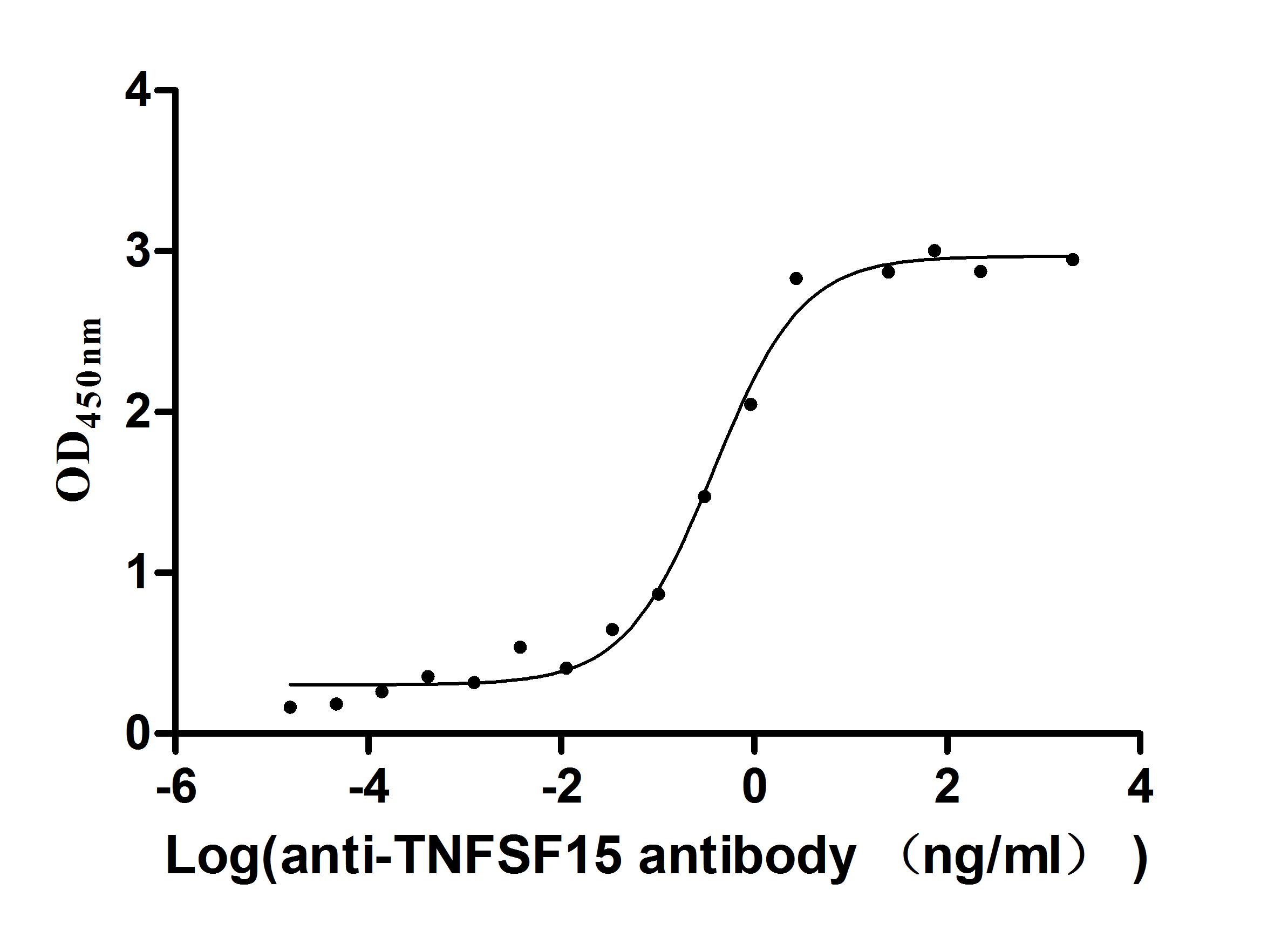Recombinant Human Fibroblast growth factor 21 (FGF21)
-
货号:CSB-YP008627HU
-
规格:
-
来源:Yeast
-
其他:
-
货号:CSB-EP008627HU
-
规格:
-
来源:E.coli
-
其他:
-
货号:CSB-EP008627HU-B
-
规格:
-
来源:E.coli
-
共轭:Avi-tag Biotinylated
E. coli biotin ligase (BirA) is highly specific in covalently attaching biotin to the 15 amino acid AviTag peptide. This recombinant protein was biotinylated in vivo by AviTag-BirA technology, which method is BriA catalyzes amide linkage between the biotin and the specific lysine of the AviTag.
-
其他:
-
货号:CSB-BP008627HU
-
规格:
-
来源:Baculovirus
-
其他:
-
货号:CSB-MP008627HU
-
规格:
-
来源:Mammalian cell
-
其他:
产品详情
-
纯度:>85% (SDS-PAGE)
-
基因名:
-
Uniprot No.:
-
别名:FGF 21; FGF-21; Fgf21; FGF21_HUMAN; FGFL; Fibroblast growth factor 21; PRO10196; UNQ3115
-
种属:Homo sapiens (Human)
-
蛋白长度:Full Length of Mature Protein
-
表达区域:29-209
-
氨基酸序列HP IPDSSPLLQF GGQVRQRYLY TDDAQQTEAH LEIREDGTVG GAADQSPESL LQLKALKPGV IQILGVKTSR FLCQRPDGAL YGSLHFDPEA CSFRELLLED GYNVYQSEAH GLPLHLPGNK SPHRDPAPRG PARFLPLPGL PPALPEPPGI LAPQPPDVGS SDPLSMVGPS QGRSPSYAS
-
蛋白标签:Tag type will be determined during the manufacturing process.
The tag type will be determined during production process. If you have specified tag type, please tell us and we will develop the specified tag preferentially. -
产品提供形式:Lyophilized powder
Note: We will preferentially ship the format that we have in stock, however, if you have any special requirement for the format, please remark your requirement when placing the order, we will prepare according to your demand. -
复溶:We recommend that this vial be briefly centrifuged prior to opening to bring the contents to the bottom. Please reconstitute protein in deionized sterile water to a concentration of 0.1-1.0 mg/mL.We recommend to add 5-50% of glycerol (final concentration) and aliquot for long-term storage at -20℃/-80℃. Our default final concentration of glycerol is 50%. Customers could use it as reference.
-
储存条件:Store at -20°C/-80°C upon receipt, aliquoting is necessary for mutiple use. Avoid repeated freeze-thaw cycles.
-
保质期:The shelf life is related to many factors, storage state, buffer ingredients, storage temperature and the stability of the protein itself.
Generally, the shelf life of liquid form is 6 months at -20°C/-80°C. The shelf life of lyophilized form is 12 months at -20°C/-80°C. -
货期:Delivery time may differ from different purchasing way or location, please kindly consult your local distributors for specific delivery time.Note: All of our proteins are default shipped with normal blue ice packs, if you request to ship with dry ice, please communicate with us in advance and extra fees will be charged.
-
注意事项:Repeated freezing and thawing is not recommended. Store working aliquots at 4°C for up to one week.
-
Datasheet :Please contact us to get it.
相关产品
靶点详情
-
功能:Stimulates glucose uptake in differentiated adipocytes via the induction of glucose transporter SLC2A1/GLUT1 expression (but not SLC2A4/GLUT4 expression). Activity requires the presence of KLB. Regulates systemic glucose homeostasis and insulin sensitivity.
-
基因功能参考文献:
- The fibroblast growth factor -21 protein was significantly less expressed in liposarcoma than in normal tissue (p<0.05). Fibroblast growth factor -21 protein expression was related to gender, but not age, cell differentiation or tumor size. The patients in the low/no fibroblast growth factor 21 expression group were more likely to relapse and die in a shorter period of time. PMID: 29953859
- These findings suggested that the serum FGF21 levels could be involved in a complex adaptive response to insulin secretion and glucose metabolism in humans. PMID: 28225059
- Taking together from both physiological and genetic levels, we suggest that FGF21 is inversely associated with regional bone density. PMID: 29299795
- besides the NF-kappaB pathway, the mechanism of action of FGF-21 was observed to involve the elevation of IL-10 in the ERK1/2 pathway. PMID: 29427162
- ChREBP and FGF21 constitute a signaling axis likely conserved in humans that mediates an essential adaptive response to fructose ingestion that may participate in the pathogenesis of NAFLD and liver fibrosis. PMID: 28123933
- Excess dietary carbohydrate, but not fat, led to markedly increased FGF21 secretion in humans, notably without protein restriction, and affected glucose and lipid homeostais. PMID: 28123934
- In patients with coronary artery disease at baseline, an elevated serum FGF21 level was associated with development of a major adverse cardiovascular event in the future. PMID: 29462798
- Fibroblast growth factor 21 (FGF21) is an atypical member of the FGF family that functions as an endocrine hormone which regulates carbohydrate and lipid metabolism. It is involved in maintaining of energy homeostasis and adaptation to starvation and low temperature. PMID: 30198244
- FGF21 is a good predictor of acute-on-chronic liver failure and organ failure, is quite specific for cirrhosis, and seems independent of etiology and systemic inflammation. PMID: 29476704
- FGF-21 could regulate the immune response indirectly by influencing the glucose uptake of activated monocytes cells. PMID: 28965199
- The genetic defect leads to a disorder of mitochondrial translation or mtDNA maintenance. PMID: 27794110
- FGF21 levels were reduced after energy-restricted treatments and severely increased after bariatric surgery, independently of the weight reduction magnitude, insulin sensitivity or ketosis; therefore, FGF21 appears to be a marker of severe nutritional stress PMID: 28588304
- In HIV-infected individuals, FGF21 is significantly positively associated with liver fat. FGF21 decreases in association with reductions in liver fat, GGT, and FIB4, suggesting that FGF21 is upregulated in the context of steatosis and steatohepatitis and is reduced when these conditions improve PMID: 29031905
- crystal structures of free and ligand-bound beta-klotho extracellular regions that reveal the molecular mechanism that underlies the specificity of FGF21 towards beta-klotho and demonstrate how the FGFR is activated in a klotho-dependent manner PMID: 29342135
- In this review, we will summarize the current progress on the roles of FGF21 against metaflammation and metabolic tissue damage [Review] PMID: 28887067
- This finding suggested FGF21 could be involved in the pathophysiology of diastolic heart failure. PMID: 27650781
- FGF21 plasma levels correlate negatively with protein intake. PMID: 28078804
- Serum FGF21 level was significantly correlated with left ventricular systolic function at baseline and higher levels resulted in greater levels of cardiac death. PMID: 28821258
- In conclusion, our study, which focused on hepatic FGF21 and omentin-1 mRNA expression, confirmed marked expression of both molecules in the liver of morbidly obese patients with NAFLD. PMID: 28820393
- Serum FGF21 concentrations are decreased in anorexia nervosa and elevated in obesity. They are independently and positively related to BMI and insulin resistance PMID: 28759185
- FGF-21 was positively associated with 10-year CHD risk PMID: 28735064
- Serum FGF21 level was an independent predictor for new-onset metabolic syndrome in a population-based prospective study. PMID: 29436198
- these findings elucidate the involvement of abnormal FGF21 expression in early APAP-induced liver impairment. Interestingly, FGF21 may be a promising biomarker of APAP-exposed livers. PMID: 28591702
- Elevated circulating FGF21 level is an independent predictor of incident coronary heard disease in Chinese patients with type 2 diabetes mellitus. PMID: 28588089
- Studied the role of fibroblast growth factor 21 (FGF21) in metabolic disorders; found FGF21 levels decreased in obesity, insulin resistance and metabolic syndrome. PMID: 28139438
- Data suggest that both osteonectin and FGF21 levels in serum are associated with early nephropathy in type 2 diabetes, albeit with different patterns; persistent hyperglycemia may inhibit bone formation leading to osteoporosis. (FGF21 = fibroblast growth factor 21) PMID: 27916484
- As part of the present study, we suggest that both tamoxifen and aromatase inhibitors can reduce FGF-21 levels independently of body compositions, and these drugs can provide antihyperlipidemic, antidiabetic and cardio-protective effects. We also recommend that serum FGF-21 level can be utilized as a tumor biomarker in early-stage breast cancer and for monitoring purposes PMID: 28106545
- Data (including data from studies in knockout mice) suggest that dietary manipulations that induce ketosis also lead to increased HPA axis tone; FGF21 knockout mice exhibit blunted HPA response to ketogenic diet relative to wild-type mice; thus, the hepatokine FGF21 appears to play important role in response to ketogenic diet. (HPA axis = hypothalamic-pituitary-adrenal axis) PMID: 29077838
- This study revealed statistically significant associations between FGF21 rs838133 and increased consumption of candy, as well as nominal associations with increased alcohol intake and daily smoking. PMID: 28467924
- The ability of FGF21 to decrease LDL cholesterol has now been traced to at least two mechanisms: a suppression of hepatocyte expression of sterol response element-binding protein-2 (SREBP-2), which in turn leads to a reduction in cholesterol synthesis; and up-regulated expression of hepatocyte LDL receptors, reflecting inhibition of a mechanism that promotes proteasomal degradation of these receptors. [review] PMID: 26872317
- The objective of this review is to compile existing information about the mechanisms that could allow the control of endogenous FGF21 levels in order to obtain the beneficial metabolic effects of FGF21 by inducing its production instead of doing it by pharmacological administration. [review] PMID: 27583468
- Fibroblast growth factor 21 (FGF21) gene expression is altered by a wide array of physiological, metabolic, and environmental factors. [review] PMID: 27285327
- As there was no significant association between FGF-21 and growth or IGF-1 both in cross-sectional and longitudinal analyses, these findings do not support the hypothesis that FGF-21 is involved in growth of obese children. PMID: 26887040
- This mini-review aims to summarize the current state of knowledge about the role of FGF21 in cardiovascular disorders, and discuss the molecular mechanism underlying the anti-atherogenic properties of this compound. [review] PMID: 27305706
- FGF21 has received particular attention because of its key role in carbohydrate, lipids, and energy balance regulation. FGF21 has an anti-oxidant function in human metabolic diseases which contribute to understanding the FGF21 compensatory increment in obesity, the metabolic syndrome, and type 2 diabetes. [review] PMID: 27318658
- cholestasis could induce FGF21 expression in FXR dependent manner PMID: 27003131
- Serum concentrations of FGF21 are elevated in patients with non-HIV lipodystrophy with adipose tissue and liver being potential sources of increased production. TG and fibrate treatment are independent positive predictors of circulating FGF21. PMID: 27179139
- FGF21 concentration in plasma is increased in patients with obesity, insulin resistance, and metabolic syndrome. Recent findings suggest that such increment protects tissue from an increased oxidative stress environment. (Review) PMID: 28039838
- FGF21 appears to act in a paracrine manner to increase glucose uptake under low insulin conditions, but it does not contribute to the resistance to diet-induced obesity. PMID: 27184848
- Insulin rather than glucose per se increases total and bioactive FGF21 in the postprandial period in adult humans. PMID: 28938434
- FGF21 has a role in promoting remyelination in the central nervous system PMID: 28825598
- FGF21 genotypes may interact with dietary carbohydrate/fat intake on changes in central adiposity and body fat composition. A low-calorie, high-carbohydrate/low-fat diet was beneficial for overweight or obese individuals carrying the carbohydrate intake-decreasing allele of the FGF21 variant to improve body composition and abdominal obesity. PMID: 27581055
- Higher vitamin D status, but not FGF21, was associated with greater postprandial glucose oxidation and improved insulin sensitivity in metabolic syndrome. PMID: 28359360
- dietary protein dilution promotes improved glucose homeostasis through an select nonessential amino acids insufficiency-induced liver NUPR1/FGF21 axis PMID: 27548521
- In Japanese men, acute endurance exercise lowers serum FGF21 levels 24 h following exercise. The results suggest that acute endurance exercise modulates postprandial FGF21 metabolism regardless of age. PMID: 27453549
- Higher circulating FGF21 levels were associated with a high mortality rate, but not cardiovascular events in patient with end-stage renal disease, suggesting that circulating FGF21 levels serve as a predictive marker for mortality in these subjects. PMID: 28582462
- FGF21 is not critical for bone homeostasis or actions of PPARalpha and PPARgamma. PMID: 27505721
- miR-149 could negatively regulate the protein expression level of FGF-21. PMID: 27061435
- As a biomarker for diabetes prediction, serum FGF21 appeared to be superior to other adipokines and, on its own, could be considered as an alternative to the oral glucose tolerance test. PMID: 27611701
- Serum FGF21 rises significantly in humans with acute pancreatitis. The pancreas may be contributing to increased FGF21 levels following injury and FGF21 may play a role in the recovery process. PMID: 27832059
显示更多
收起更多
-
亚细胞定位:Secreted.
-
蛋白家族:Heparin-binding growth factors family
-
数据库链接:
HGNC: 3678
OMIM: 609436
KEGG: hsa:26291
STRING: 9606.ENSP00000222157
UniGene: Hs.283015
Most popular with customers
-
Recombinant Human Tumor necrosis factor receptor superfamily member 1A (TNFRSF1A), partial (Active)
Express system: Mammalian cell
Species: Homo sapiens (Human)
-
Recombinant Mouse Gastric inhibitory polypeptide receptor (Gipr), partial (Active)
Express system: Mammalian cell
Species: Mus musculus (Mouse)
-
Recombinant Human CUB domain-containing protein 1 (CDCP1), partial (Active)
Express system: Mammalian cell
Species: Homo sapiens (Human)
-
Recombinant Human Interleukin-2 (IL2) (Active)
Express system: Mammalian cell
Species: Homo sapiens (Human)
-
Recombinant Human B- and T-lymphocyte attenuator(BTLA), partial (Active)
Express system: Mammalian cell
Species: Homo sapiens (Human)
-
Express system: Mammalian cell
Species: Macaca mulatta (Rhesus macaque)
-
Recombinant Human Tumor necrosis factor ligand superfamily member 15(TNFSF15) (Active)
Express system: Mammalian cell
Species: Homo sapiens (Human)
-
Express system: Mammalian cell
Species: Homo sapiens (Human)


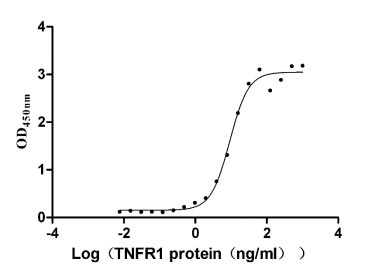
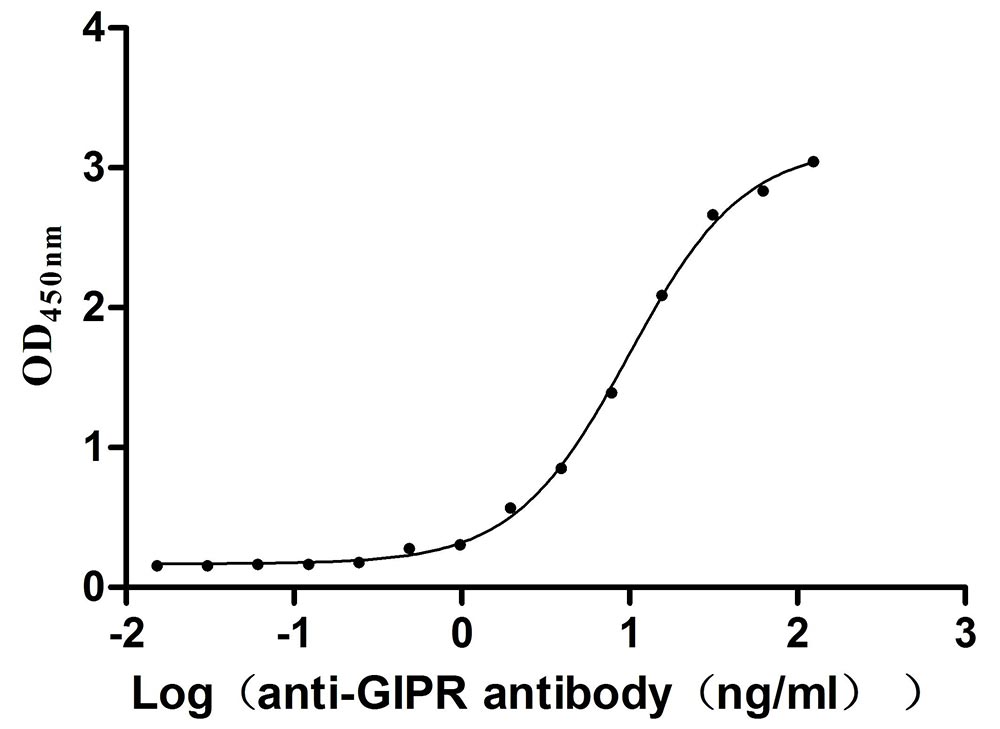
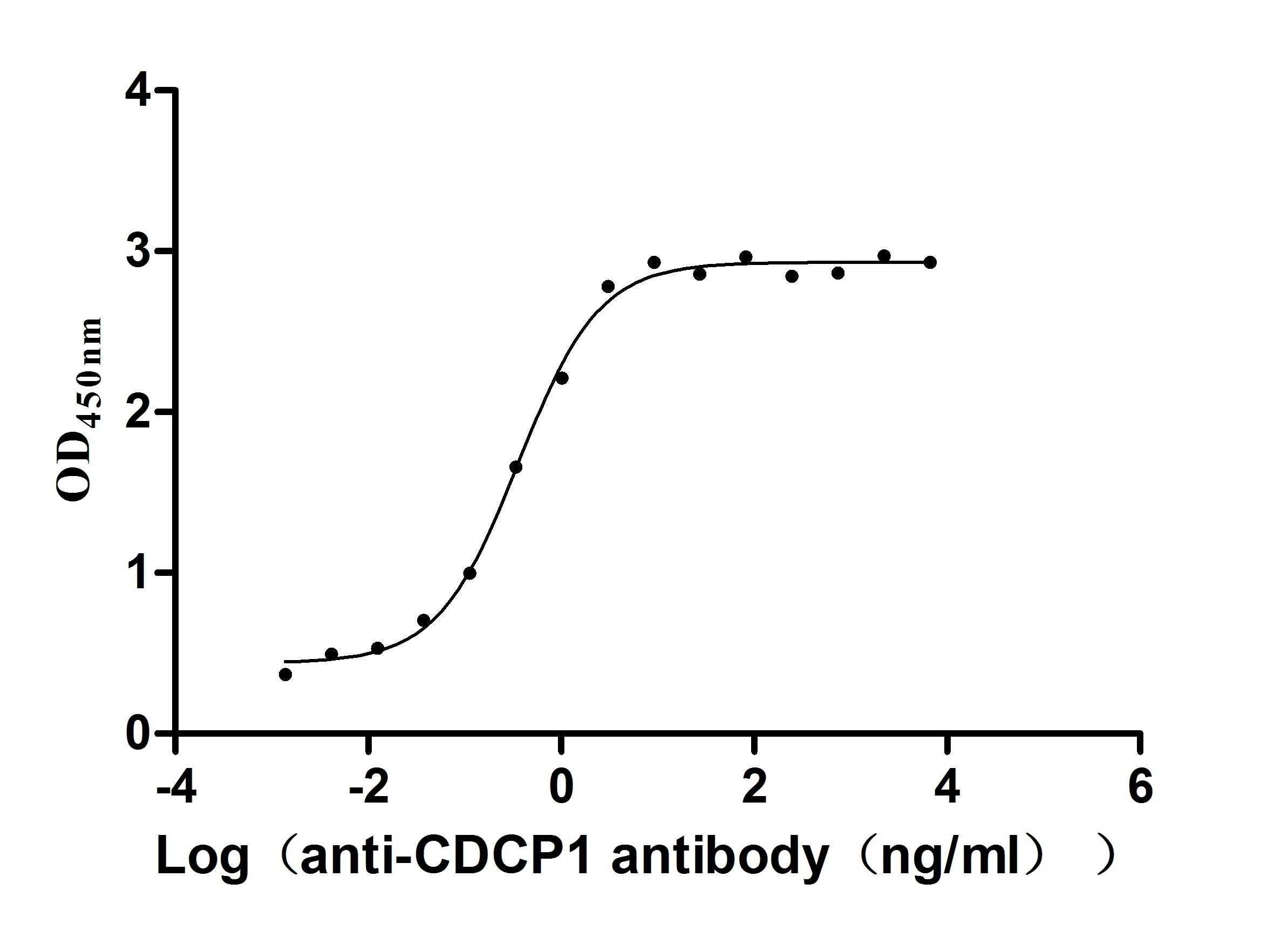

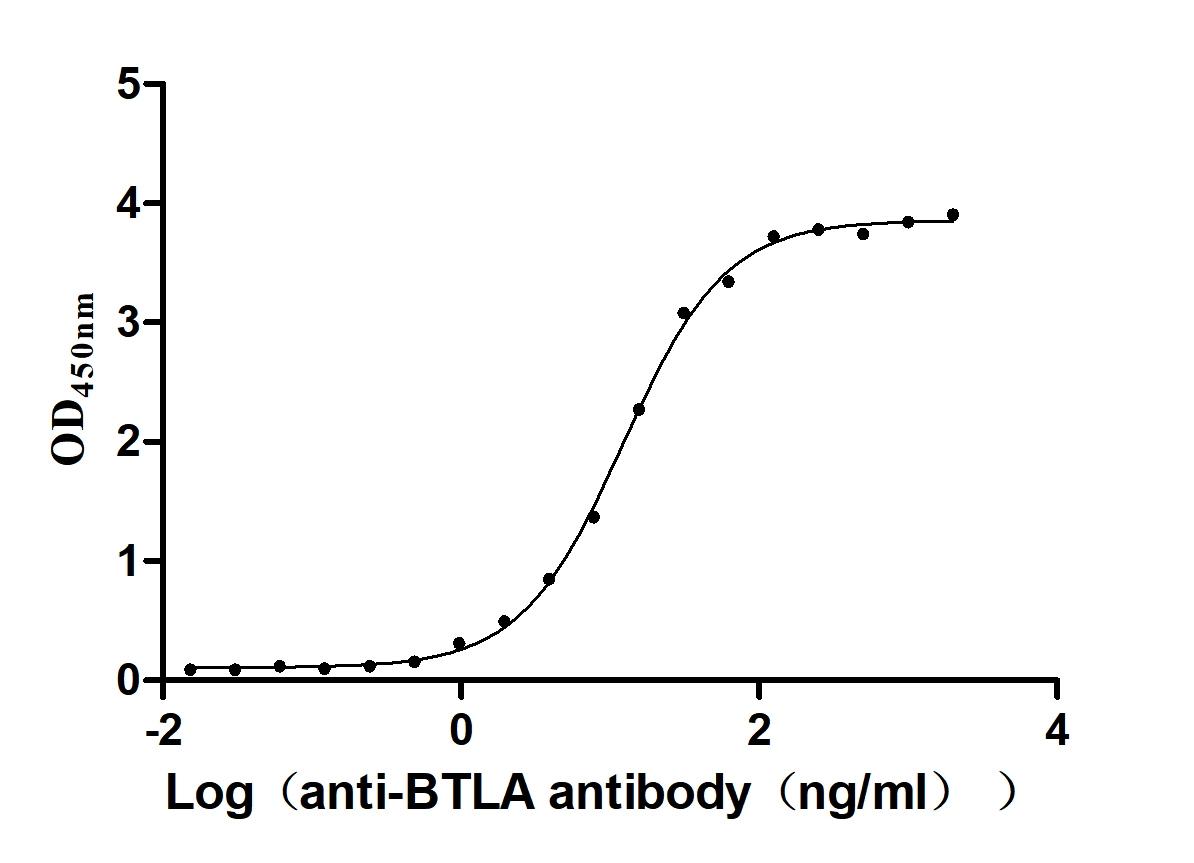
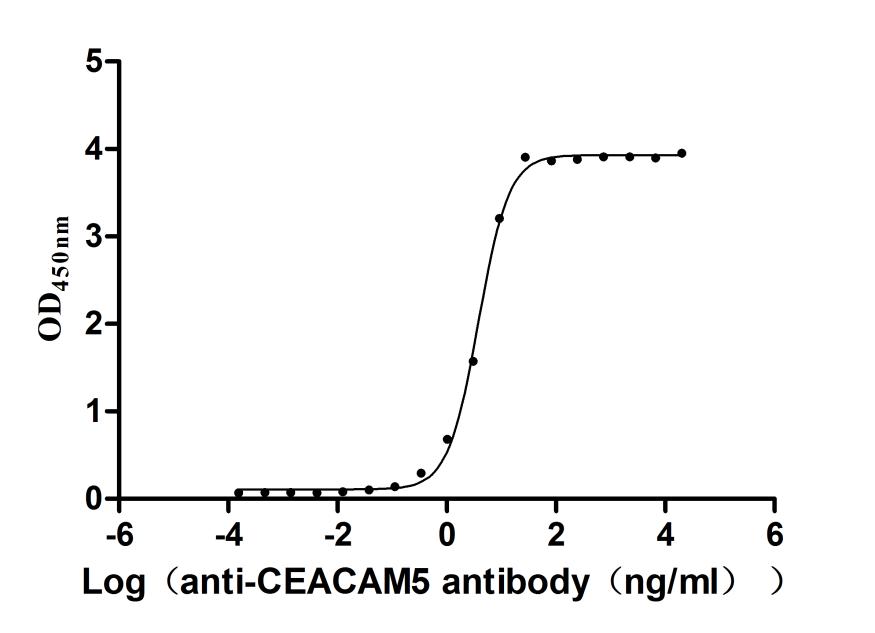
-AC1.jpg)
